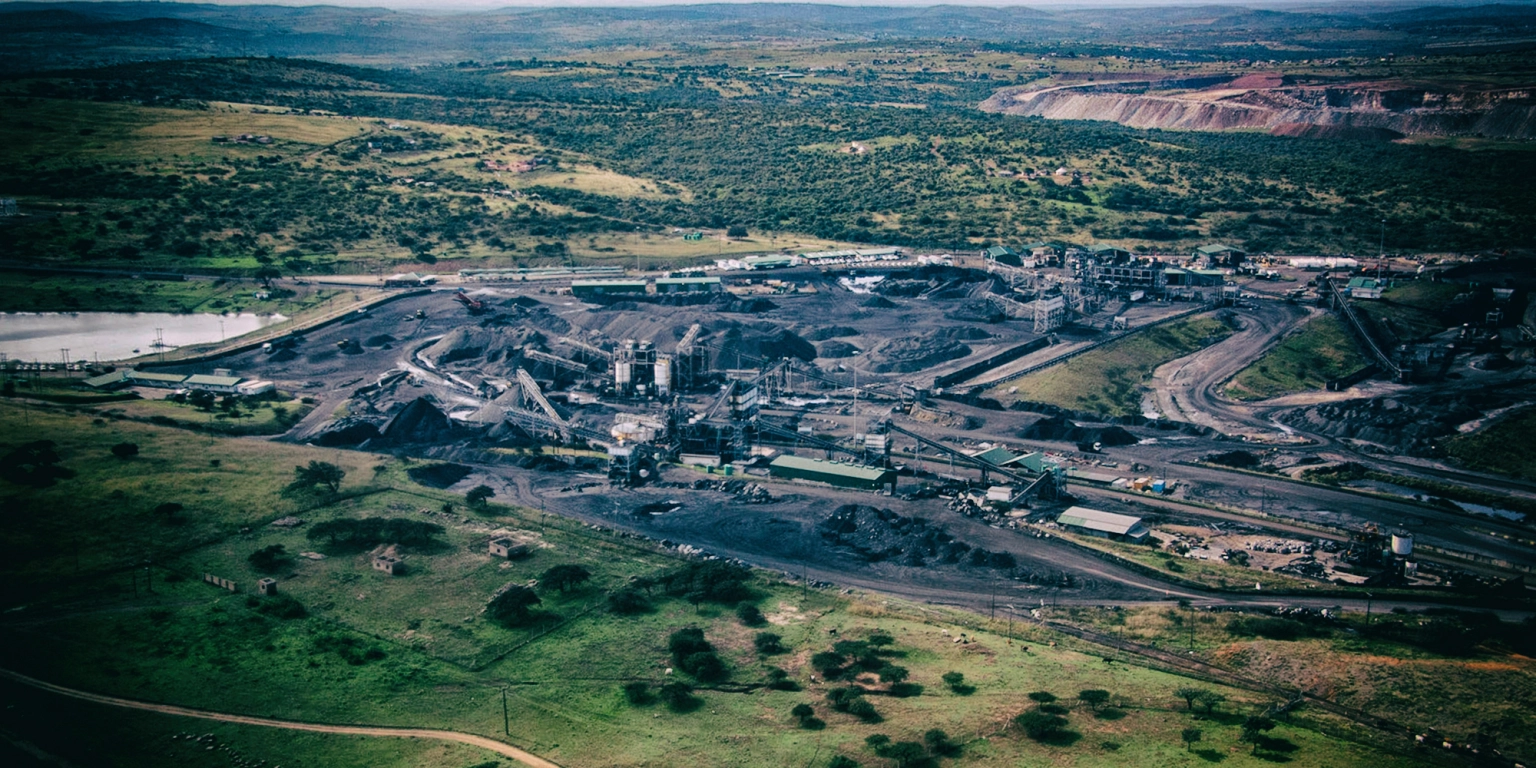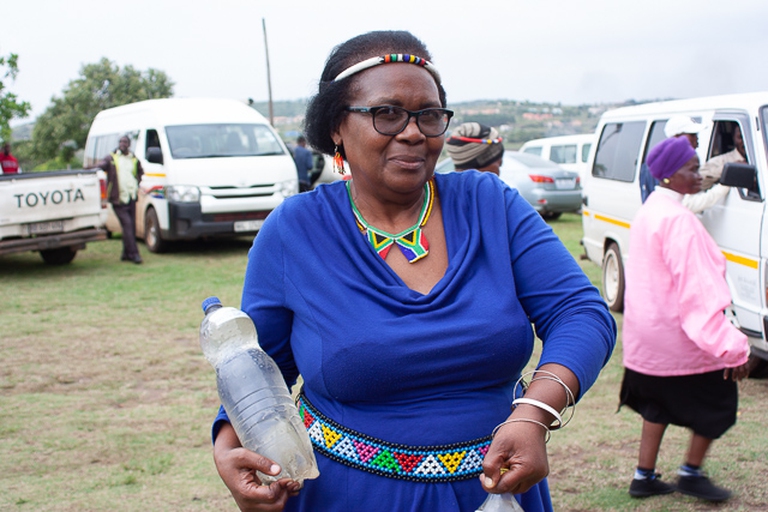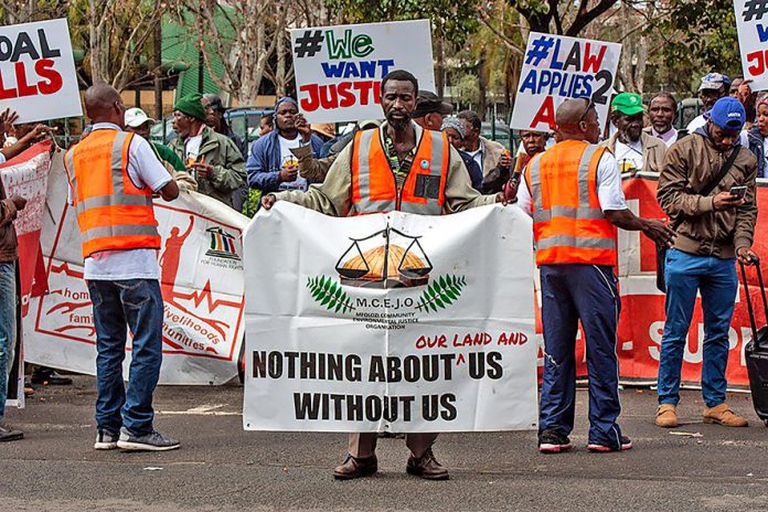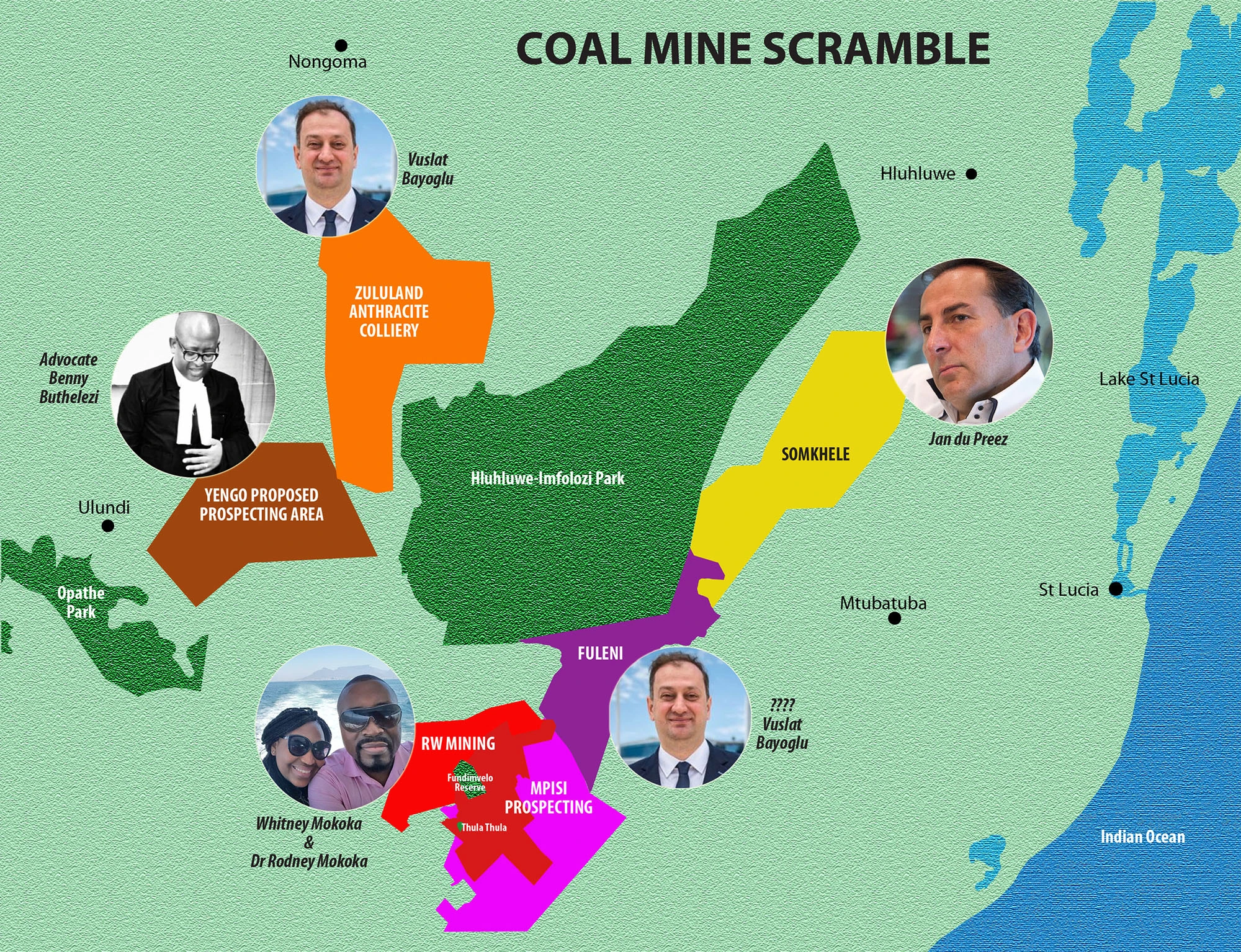
A report by Ember explains that in 2025 electricity generation from renewables (solar, wind and hydropower) surpassed that from fossil fuel sources.
Communities in Kwa-Zulu Natal have been at loggerheads with Tendele Coal Mine over land destruction, water pollution and the killing of activists.
Local communities in Somkhele, a rural mining area in the South African province of Kwa-Zulu Natal, located 467 kilometres away from the capital Johannesburg, are accusing Tendele Coal Mining (PTY), a subsidiary of South African company Petmin, of causing untold destruction of the environment and homes and livelihoods of the villagers of Somkhele. In recent years, the mine has been embroiled in a legal battle with environmentalists and community members in the surrounding villages over plans to expand its coal mining activities by 21.8 million hectares (54 million acres). The activists allege that the looming expansion would displace hundreds of villagers from their ancestral land, many of whom earn a living by subsistence farming.
The South African government recently awarded a controversial licence to Tendele Coal Mine to expand its coal mining activities at the Somkhele mine in KwaZulu-Natal. Fortunately, the Pretoria High Court Judge Noluntu Bam blocked Tendele’s coal expansion licence. The judge ruled that the government acted illegally in extending coal mining rights to the Tendele Coal Mining Company. In addition, Noluntu Bam ordered that the entire licence grant be reconsidered by the Minister of Mineral Resources and Energy. “I’m ordering the relevant ministry to re-open an appeal lodged by various community organisations which had been dismissed,” said the judge.
The judge likened Tendele’s behaviour during the mine extension process to that of an “unbridled horse that showed little or no regard for the law”. Meanwhile, Tendele has conceded that it could not defend its position on several issues, including that its public participation process was “imperfect”, adding that there were multiple deficiencies in its environmental impact assessment.
Despite the flaws, Tendele said that its mine had one of the largest resources of open-pit anthracite reserves in the country and that failure to meet its supply commitments could have devastating results not only for the company but for South Africa’s economy. The firm also boasted that it was a major employer in the area.
Some of the activists in mining-affected communities have been murdered whilst others have experienced threats and intimidation from unidentified phone numbers. Experts believe the threats are a consequence of their activism.
Three years ago, Fikile Ntshangase, a former senior member of the Mfolozi Community Environmental Justice Organisation (MCEJO), a KwaZulu Natal-based organisation was involved in a legal dispute challenging the further expansion of the Tendele coal mine. “I refused to sign. I cannot sell out my people. And if need be, I will die for my people.” Tragically, Fikile Ntshangase’s words became a reality when she was murdered at her rural home next to the Hluhuluwe-iMfolozi Game Reserve in northern KwaZulu-Natal. Troublingly, the killers have still not been brought to justice.
Many have alleged that Fikile was murdered because of her fierce criticism of Tendele Coal Mine Mining. But the company has said any link to the death of Ntshangase is completely unfounded and called it a ‘senseless killing’.
According to local media reports, Tendele has started circulating notice letters in the Ophondweni, Emalahleni, Machibini and Mahujini communities to notify residents that the company will start fencing off their land and building new coal-hauling access roads by March 15 this year. Activists claim that the circulated notices say nothing about the size of the land covered by the mining rights. They described the notice as misleading.
Currently, it remains unclear how many more residents will be evicted from their ancestral land to pave the way for Tendele’s expanded coal mining operations. Sadly, the local inhabitants are not alone in fearing for their future. Kwa-Zulu Natal province is a region where thousands of people have been forced out of their communities to make way for mining development. Locals have often not been compensated or have received compensation that is not equivalent to the value of their properties.
Existing coal mines and new coal mine hunters have allegedly encircled an iconic game reserve, the Hluhuluwe-iMfolozi Park. Established in 1876, the national park incorporates one of Africa’s first “wilderness” zones and is home to a rich diversity of wildlife, including the “Big 5” (Black and White Rhinoceros, Elephant, Buffalo, Lion and Leopard). The reserve is now under threat from a coal-mining venture that could destroy one of Africa’s most iconic wilderness areas.
Meanwhile, the Daily Maverick, a South African news outlet, reports that the Zululand Anthracite Colliery (ZAC) also has plans to build a new shaft next to the Masokaneni community, adjoining the northwest section of the park on the above map. More recently, a company known as Imvukuzane Resources was granted environmental authorisation to sink 55 coal prospecting boreholes in the Fuleni area, which directly abuts the southern edge of the Hluhluwe-iMfolozi wilderness zone.
Presumably, South Africa must know that coal is the most carbon-intensive fossil fuel, and phasing it out is the only key to achieving the 1.5°C Paris Agreement goal, which makes the government’s approval of such large-scale mining projects all the more problematic.
Siamo anche su WhatsApp. Segui il canale ufficiale LifeGate per restare aggiornata, aggiornato sulle ultime notizie e sulle nostre attività.
![]()
Quest'opera è distribuita con Licenza Creative Commons Attribuzione - Non commerciale - Non opere derivate 4.0 Internazionale.
A report by Ember explains that in 2025 electricity generation from renewables (solar, wind and hydropower) surpassed that from fossil fuel sources.
The Tyler Prize, considered the “Nobel Prize for the Environment,” has been awarded to Toby Kiers, an American biologist working in Amsterdam.
Belgium is one of the countries most exposed to climate change. Dune–dikes are a solution to curb sea-level rise.
Between October 2024 and September 2025, the average temperature in the Arctic was 1.6 degrees Celsius higher than during the 1991–2020 period.
Undeclared conflicts of interest, paid authors, lack of transparency: one of the most cited studies on glyphosate, published in 2000, has been retracted.
The Copernicus service has released data for the first eleven months of 2025: global warming is set to come close to last year’s record.
The European Council and Parliament have reached an agreement on the European Commission’s proposal to deregulate new GMOs. But farming, organic agriculture, and environmental organizations are calling for it to be stopped.
The world’s second-largest producer has taken a historic decision. However, farms will have until 2034 to shut down.
A Greenpeace report denounces Russia’s political and economic model: a nexus of extractivism, authoritarianism and war that is destroying the environment, with serious repercussions for the global ecosystem.











